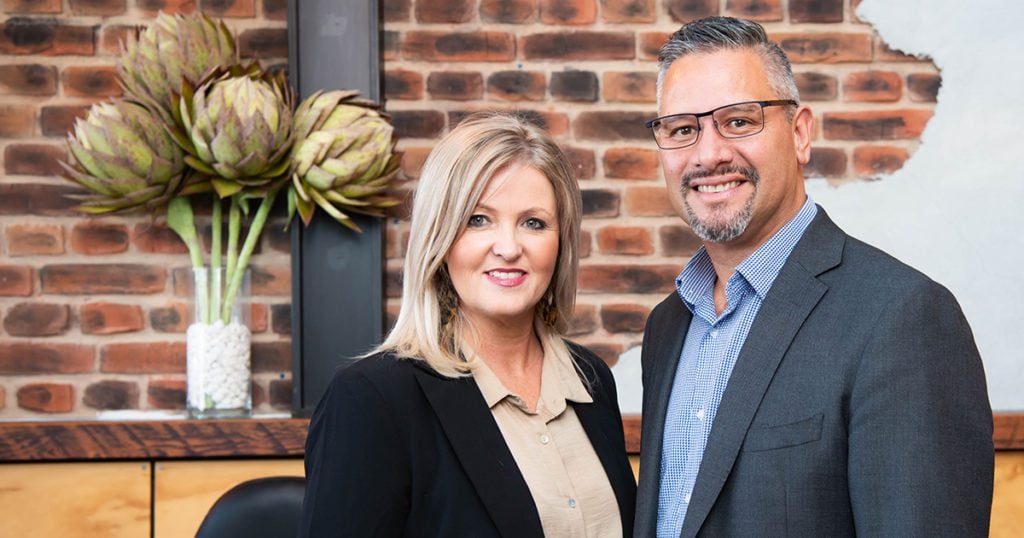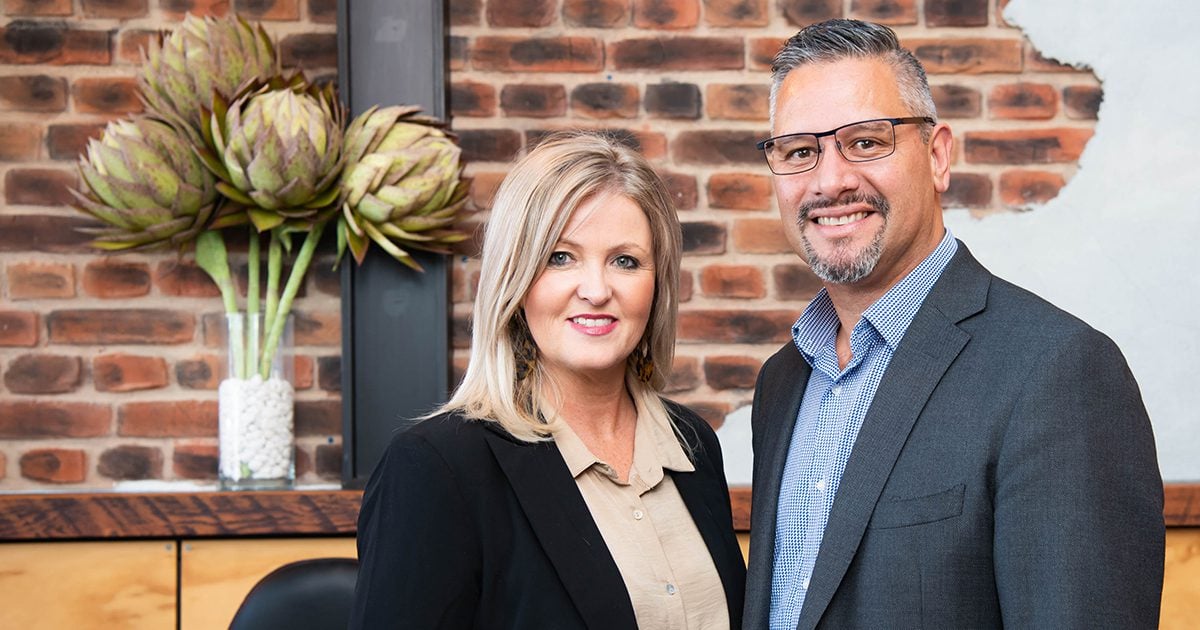COVID-19: Additional tax relief announced

IRD will have the flexibility to change statutory tax deadlines as part of new measures announced to provide relief for taxpayers during the COVID-19 pandemic.
Plans are also afoot to introduce a temporary tax loss carry-back scheme and relax the tax loss continuity rules.
Today’s announcement by the Government recognises taxpayers require more assistance during what is proving to be a financially trying time.
It follows the tax relief measures they unveiled last month.
The Government plans to introduce legislation containing these changes during the week beginning 27 April.
Detail about the new measures is light at this stage. IRD is not answering specific questions as they’re currently engaging with the wider tax community to determine how things will work.
Nonetheless, below is a summary of what we currently know about these new tax measures.
Giving IRD the power to change deadlines
IRD will have greater flexibility to temporarily change statutory tax dates, timeframes and procedural requirements for businesses and individuals impacted by COVID-19.
This discretionary power will be introduced via an amendment to the Tax Administration Act 1994.
While IRD will publish further guidance in the coming weeks following consultation with tax advisors, this may enable them to extend the deadlines for filing tax returns and paying provisional and terminal tax.
At this stage, the power will apply for a period of 18 months.
Temporary tax loss carry-back scheme
This will allow a taxpayer expecting to make a loss in either the 2020 or 2021 tax year to estimate that loss and use it to offset profit in the previous year.
They will also receive a refund of the tax paid in the previous profitable year.
A taxpayer will be able to cash out all or some of their losses in the 2020 or 2021 tax year. Under current rules, they can only carry them forward to a year when they make a profit.
They will have the option of re-estimating their provisional tax after the date of their final instalment if they require additional time to work out any estimated loss for the 2021 tax year.
IRD will be consulting with tax advisors to ensure the law and administrative guidance are clear.
Please note the Government is also considering a permanent loss carry-back scheme. It would apply from the 2022 tax year onward.
IRD says there will be public consultation about this during the second half of 2020.
Relaxing the tax loss continuity rules
Currently, a company cannot keep its tax losses if it has more than a 51 percent change in ownership.
However, the introduction of a ‘same or similar business’ test will mean they can and help make businesses seeking investment to keep afloat during the COVID-19 pandemic more appealing to investors, thus improving their access to capital.
IRD says the criteria which must be met to satisfy this requirement is modelled on Australia’s rules. This means a company must continue in the same or a similar manner it did before any change in ownership.
Again, IRD is engaging with the tax community to ensure the law is clear.
The Government intends to pass legislation relaxing the tax loss continuity rules before the end of March 2021.
They will apply for the 2021 tax year onward.
More information
You can find out more about today’s announcement by the Government via the links below.
- COVID-19 (novel coronavirus) – tax changes to support businesses
- Supporting small and medium sized enterprises during the COVID-19 crisis
- Government backs business through COVID-19
TMNZ will continue to update you with any new tax developments relating to COVID-19.
COVID-19 update: Devil in the detail with UOMI remission

Update as at 14 April 2020 after IRD clarified its position following the publication of this article
Someone who is struggling to pay tax on time due to COVID-19 will have to engage with IRD and agree to the terms of a payment plan if they want to receive a remission of interest (UOMI).
Given that, they might find setting up a Flexitax® arrangement with TMNZ much easier.
But more on that later.
The criteria for UOMI remission
First, IRD has issued general guidance on the requirements taxpayers must meet in order to be eligible for a remission of UOMI on tax obligations due after 14 February 2020.
To qualify, someone must satisfy the department that they are:
- Physically unable to make their payment when it’s due because of COVID-19; or
- Struggling financially to pay on time because of the economic impact caused by the outbreak of the deadly virus.
IRD also requires taxpayers seeking relief to both contact them and pay the tax they owe “as soon as practicable”.
Now on the surface that doesn’t sound too onerous. However, this is the taxman we’re talking about and the devil always lurks in the detail.
And, when you delve a little deeper, it appears that they’re asking a lot from anyone seeking assistance due to COVID-19.
What does ‘struggling financially’ mean?
IRD says there must be a reduction in someone’s income or revenue as a result of COVID-19 which prevents them from paying their tax on time and in full.
The extent to which there needs to be a reduction in income or revenue is not explicitly set out.
IRD will look at GST and other tax return information to help it get a picture of someone’s financial affairs when determining the extent of the relief it will grant them. That’s why it’s important to keep filing these returns.
They may want to know how a taxpayer plans to sustain their business if they own one.
IRD indicates that they may ask a taxpayer to provide the following information when applying for a remission of UOMI:
- Bank and credit card statements for at least the last three months.
- Any management accounting information.
- A list of aged creditors and debtors.
We understand this will be for more serious cases where someone is asking for IRD to write off the tax payable in addition to UOMI.
And, although they do not mention this specifically, their guidance document implies someone will also need to have reviewed other financing options before going cap in hand to IRD. The two examples they give are not helpful as they involve taxpayers who either cannot get an extension of their business overdraft or have maxed out their personal loans or credit cards.
If the department deems the taxpayer has the means to pay on time following a review of their financial affairs, it will expect that person to do just that –and will take appropriate action if they don’t.
What does ‘as soon as practicable’ mean?
IRD says it will determine this on the facts of each case.
As a general guideline, they say someone will satisfy this requirement if they both apply for relief and agree to pay the tax at the earliest opportunity (or over the most reasonable period given their specific circumstances).
We take this to mean that taxpayers seeking a remission of UOMI must:
- Be proactive and apply for this relief as soon as possible. If you have missed a payment, you can still contact IRD and ask for remission.
- Agree to pay the tax they owe as quickly as possible – most likely at a date or within a timeframe set by IRD based off the financial and tax return information it receives from the applicant. In other words, this WILL NOT be a two-year holiday or deferral from paying tax.
- Contact IRD as soon as possible if they encounter further difficulty and need to re-negotiate the terms of the agreement.
- Honour the agreement with IRD by paying the tax they owe.
If someone ticks those boxes, we believe IRD will consider them to have met the ‘as soon as practicable’ requirement.
How will the UOMI remission work?
Taxpayers seeking a remission of UOMI will agree to enter a payment plan with IRD.
This will likely be a regular instalment arrangement, but may also include:
- An instalment arrangement with a deferred payment start date.
- A partial write-off due to serious hardship and payment of the remaining tax by instalment or a lump sum.
- A partial payment and balance write-off under maximising recovery of outstanding tax.
Again, the type of payment plan entered – and any instalment amounts payable – will likely to be determined by IRD based on someone’s financial and tax return information.
In serious cases of hardship, IRD says it may agree to write off the debt.
UOMI and late payment penalties will continue to accrue for those who enter a payment arrangement.
However, once a taxpayer pays the tax they owe and IRD deems they meet the criteria for remission, it will automatically cancel UOMI.
IRD will also wipe late payment penalties.
Those who do not pay the outstanding tax will face UOMI from the date they stop complying with their arrangement.
IRD’s ability to remit UOMI due to COVID-19 under s183ABAB Tax Administration Act 1994 will apply until 25 March 2022.
Why paying with TMNZ might be easier
The requirements a taxpayer must meet to receive a remission of UOMI from IRD may prove to be one hurdle too many during what is already a difficult time due to the COVID-19.
They may find it easier to set up a Flexitax® payment arrangement with TMNZ if they’re unable to pay their 7 May 2020 provisional tax on time – or missed paying terminal for the 2019 tax year on 7 April 2020.
The reasons why are simple:
- It’s light touch in terms of organising the arrangement – approval is guaranteed, and no security or financial information is required.
- Taxpayers have the flexibility to pay as and when it suits their cashflow.
- No need to worry about late payment penalties.
- Competitive interest cost in comparison to most other forms of credit or finance. We’re the next best option for those who are ineligible (or don’t want to go through the process of applying to IRD) for a remission of UOMI.
- The arrangement doesn’t impact other lending arrangements.
- More time to pay – an extra 75 days to settle the 2019 terminal tax and up to 13 months to pay provisional tax for the 2020 tax year.
- You only pay for the tax you end up requiring.
- We’re approved by IRD.
Please get in touch with us today if you wish to know more about Flexitax®.
Standard uplift: When 105 percent uplift payments are less than 110 percent payments

IRD will sometimes apply the 105 percent standard uplift calculation (CY-1) retrospectively when determining what's due and payable at each provisional tax instalment.
This happens in situations where CY-1 payments turn out to be less than 110 percent uplift payments (CY-2).
When this is the case, IRD's system will automatically overwrite the CY-2 calculation once a taxpayer files their return for the previous year.
It will apply what's payable as per the CY-1 calculation to any earlier instalment(s) prior to the date of filing that return. See below.
| Example - uplift instalments for 2020 tax year when 105 percent is less than 110 percent A taxpayer with a 31 March balance date with the following information: 2018 RIT: $35,000 The standard uplift payments due and payable for the 2020 tax year are as follows: |
TMNZ’s Provisional Tax Calculator also applies this logic when taxpayers enter their RIT and filing date information.
As you can see, this benefits standard uplift taxpayers.
What if 105 percent is GREATER THAN 110 percent?
When this applies, uplift can be calculated based on the lower CY-2 amount for any instalment(s) due prior to the date the previous year’s return is filed.
This is based on the premise that a taxpayer cannot pay an amount they do not know about and ensures they are not significantly underpaid based on their total uplift amount.
| Example - uplift instalments for 2020 tax year when 105 percent is GREATER THAN 110 percent A taxpayer with a 31 March balance date with the following information: 2018 RIT: $0 The standard uplift payments due and payable for the 2020 tax year are as follows: |
Legislative change to reflect this approach to standard uplift
IRD's legal team feels the legislation is not clear in regards to overwriting CY-2 with CY-1 when the latter is lower. As such, there is an amendment in the Taxation (Kiwisaver, Student Loans, and Remedial Matters) Bill that will align the legislation with what the department is doing operationally.
The Bill is due to have its second reading.
Please feel free to contact TMNZ if you have any questions about this.
Be sure to download our free guide on calculating provisional tax using the standard uplift method if you haven't done so.
IRD agrees to stop contacting clients directly

Accountants have a fundamental role to play in the tax system and IRD is putting measures in place to limit direct contact with their clients.
These are the words of IRD commissioner Naomi Ferguson.
Her announcement – made during her address at the annual Chartered Accountants Australia and New Zealand (CA ANZ) Tax Conference in Auckland – comes as a response to concerns raised in a survey by tax agents that they are being pushed out and undermined.
The commissioner was quick to allay those fears, reminding accountants of the important role they play in maintaining the trust, confidence and integrity of the tax system. She added they will continue to do so as IRD forges ahead with Business Transformation.
In terms of the unintended issues stemming from IRD contacting clients directly, she said more than 70 processes involving interactions with taxpayers have been adjusted since issues were brought to its attention.
IRD will also invert the system so that the default position ensures tax agents will receive correspondence for any taxpayers to which they are linked.
A very timely announcement
Her announcement is welcome news for many accountants.
It is also timely, coming directly after TMNZ chief executive Chris Cunniffe presented at the conference the results of the annual Satisfaction with IR Survey.
The survey – commissioned by TMNZ and CA ANZ, and in its ninth year – found that nearly three-quarters of members working in public practice had clients who were contacted directly by IRD in the past six months. This is up from 66 percent the previous year.
Agents were very vocal in voicing their displeasure about this.
As a result of IRD bypassing them and contacting more of their clients directly, they were starting to feel undermined. Some were also expressing concern that the department is deliberately designing the tax system to phase them out.
Feedback in the survey is consistent with what TMNZ and CA ANZ are hearing from accountants at their respective roadshows.
However, following the IRD commissioner’s announcement, tax agents will now be able to rest easy.
Satisfaction with IR Survey: Other findings
The Satisfaction with IR Survey asks CA ANZ members in
public practice and business for their views on Business Transformation and
interactions with IRD.
Below are some of the other key findings from this year’s survey.
Members’ experiences contacting IRD
Chartered accountants’ overall satisfaction with IRD dropped for the fourth year running. It now sits at 66 percent, down sharply from 78 percent in 2018.
The decline is steepest among accountants in public practice.
That's due to the difficulty they face when trying to find the right person to speak to when phoning IRD (declined 11 percentage points) and the accuracy of the department’s processing (declined 15 percentage points).
The challenges experienced in these areas can be attributable to the release of phase three of Business Transformation earlier this year.
Polarising views on Business Transformation phase three
Members in public practice were less favourable about this
release compared to members in the corporate, public and not-for-profit sectors
– a reflection of their experiences of phase one where they were again the
hardest hit.
Difficulty finding things on the website, the speed of IRD’s responses and processing times, and getting known errors fixed are the source of their frustration with phase three.
But those who feel the release has gone well believe the website is easy to use and contains all the information they require in one place.
Forty percent of members believe IRD is prepared to face the
challenges of the next 12 months but feel these could be better addressed with
more honest communication, staff training and wider engagement with taxpayers,
software providers and accountants.
Members say that general information in tax information bulletins, rulings, brochures and tax alerts have all improved this year.
TMNZ and CA ANZ share the full survey results with IRD. You can view them here.
About the Satisfaction with IR Survey
TMNZ and CA ANZ have been conducting the Satisfaction with IR Survey since 2011.
Don't let 15 January provisional tax cause stress

Paying 15 January provisional tax can be stressful and a pain in the derrière for many businesses – but it doesn’t have to be.
There is an IRD-approved service that allows taxpayers to make this payment when it suits them.
To understand why this might appeal, one must understand why 15 January provisional tax can be problematic.
For starters, let’s look at the timing of this payment. It is due when folks are enjoying the beach, BBQs, the bach or the boat. As the weather gets warmer, business activity for some chills during at this time of the year.
And while the current interest concession rules for taxpayers using the standard uplift method to calculate their provisional tax payments means they now have greater certainty over the amount due, this concession fails to recognise one thing that may be an issue for some during the Christmas-early New Year period: Cashflow.
Xero’s small business insights are telling. Only 39 percent of respondents were cashflow positive in January 2019. Moreover, invoices were also paid on average almost 11 days late during that month.
For some, the Christmas-early New Year period may mean six to eight weeks of no money coming in.
Only IRD can be so cruel to have provisional tax due on 15 January – and then flog a taxpayer with its interest (currently 8.35 percent) and late payment penalties if they fail to pay on time.
Pay 15 January provisional tax when it suits you
An IRD-approved tax pooling provider such as TMNZ offers provisional taxpayers payment flexibility, without having to worry about IRD interest and late payment penalties.
A taxpayer entering a payment arrangement with a tax pooling provider has the option of paying what they owe in instalments or deferring payment of the full amount to a date in the future that better suits them.
Approval is guaranteed, and no security is required.
How does it work?
The tax pooling provider makes a deposit into its IRD account on behalf of a taxpayer on the date their provisional tax payment is due (e.g. 15 January 2020). This deposit is date stamped as at the date it is made.
A taxpayer then goes about paying the tax pooling provider the core tax.
If they pay the full amount of tax owing, the tax pooling provider will transfer the entire deposit it is holding in its IRD account on behalf of that taxpayer to the taxpayer’s IRD account.
As this deposit carries a date stamp as at the date it was made, IRD will recognise it as if the taxpayer paid their 15 January provisional tax on time once it processes this transfer. This will eliminate any IRD interest and late payment penalties.
If the taxpayer opts to pay what they owe in instalments, the tax pooling provider transfers to the taxpayer’s IRD account an amount of the date-stamped tax deposit that matches the amount of every part payment they make until they satisfy their liability.
IRD will remit all interest and late payment penalties once the taxpayer pays the full amount owing.
What is the cost?
The taxpayer has some interest to pay – but this is cheaper than the 8.35 percent IRD charges when a taxpayer misses or underpays 15 January provisional tax.
Generally, it’s also less than a taxpayer’s existing finance rates.
A taxpayer choosing to finance the full payment of 15 January provisional tax to a later date will pay a fixed interest cost up front.
This is because they are agreeing to pay what they owe at an agreed upon date in the future.
The interest cost is based on the tax amount due and the date in the future they wish to pay.
Interest works a little differently if a taxpayer chooses to pay in instalments. The tax pooling provider will recalculate its interest on the core tax remaining at the end of each month.
Other options for 15 January provisional tax and how tax pooling compares
Another possibility is setting up a payment plan with IRD.
However, as part of this process, you will need to supply financial information and details around the timeframe you expect to settle your liability. IRD interest will continue to apply during any arrangement you strike.
You could also consider a short-term bank loan if cashflow issues will make paying 15 January provisional tax problematic. Again, there’s a process to go through and certain lending criteria must be met.
What you can do now
No doubt you are doing everything between now and when jolly ol' Santa rides into town on his present-laden sleigh to make sure you have enough funds to make ends meet if you feel the Christmas-early New Year period is going to be tough.
That probably means the usual jazz: preparing a budget, prioritising jobs you can complete quickly, chasing up anyone who owes you money and seeing if you can buy more time with creditors. Every dollar counts, right?
We have more tips in our free guide Better Cashflow Management that you might also find useful.
Now is also the opportune time to seek professional advice if, after doing a forecast, you feel you may encounter some strife. A good advisor will work with you to ensure a potential holiday cashflow issue does not become a crisis and help you manage your 15 January provisional tax payment.
AIM and tax pooling

Legislation prevents taxpayers from using tax pooling to pay AIM provisional tax instalments.
We are issuing this reminder as IRD notifies us they are seeing several tax pooling transactions for these types of payments.
Section RP17B (2)(a) Income Tax Act 2007 says an amount held in a tax pooling account on behalf of a taxpayer can only be used to satisfy a liability for “provisional tax other than under the AIM method”.
That means that a taxpayer using this provisional tax method is unable to use TMNZ to defer an upcoming AIM instalment or reduce their interest cost if they fail to make this payment on time or in full.
IRD will reject these transfers.
The only time an AIM user can use tax pooling is for terminal tax – for example, an amount that’s due on 7 April – or if they receive a notice of reassessment from IRD.
This is something accountants need to be aware of before signing clients up to this option.
Why IRD doesn’t allow tax pooling
IRD says it is not appropriate for taxpayers to use tax pooling for AIM provisional tax instalments because payments under this method:
- Have certainty.
- More closely match income flows of a business.
- Have no exposure to IRD interest (assuming a taxpayer pays the amount due in full and on time).
The Tax Pooling Intermediary Association, of which TMNZ is a member, and Chartered Accountants ANZ disagrees with that viewpoint. They say it assumes a taxpayer has the necessary cashflow to make their payments – but that is not always the case.
You can read both sides' argument here.
Usage of AIM
Uptake of AIM has been poor since it came into effect for the 2019 income year. According to IRD figures last year, only 1100 taxpayers are using this method. That works out to be about 10 percent of those eligible.
There are two IRD articles promoting AIM this year – yet curiously neither cites the current number of active users despite waxing lyrical about the benefits. This suggests it remains low.
TMNZ’s view is AIM is compliance heavy and will only suit a small handful of taxpayers.
TMNZ’s submission on Taxation (Kiwisaver, Student Loans, and Remedial Matters) Bill

TMNZ supports all but one of the proposed provisional tax amendments in the Taxation (Kiwisaver, Student Loans, and Remedial Matters) Bill.
We made a submission on the Bill last week after receiving feedback from clients.
In it, we share our thoughts on the following proposed amendments to provisional tax:
- Eliminating the requirement to estimate at the final instalment date for provisional tax.
- Clarifying the ‘lesser of’ calculation of interest for standard uplift taxpayers.
- Clarifying the application of late payment penalties applicable from the final provisional tax instalment date.
- Removing the ability for taxpayers to choose the provisional tax instalment to which a payment is applied.
- Clarifying the way in which provisional tax is truncated to whole dollars.
- Non-standard provisional tax instalments.
As well as that, we also ask IRD to address a possible gap in the legislation that it fails to mention in the Bill's commentary.
This relates to IRD clarifying the amount on which it applies interest and late payment penalties when a third of actual is lower than the uplift payment at the second instalment.
The provisional tax changes in the Taxation (Kiwisaver, Student Loans, and Remedial Matters) Bill: Our view
It is TMNZ’s view that all but amendment 4 are positive for taxpayers.
Amendment 4 will result in taxpayers facing compounding interest and late payment penalties.
However, we believe IRD needs to provide greater clarification relating to amendment 3.
That's because the commentary is not clear what happens for taxpayers in situations where the amount due at the final instalment is less than uplift and a third of actual.
Moreover, it is also our view that IRD applies amendment 5 retrospectively from the 2017-18 tax year.
You can read TMNZ’s full submission on the Taxation (Kiwisaver, Student Loans, and Remedial Matters) Bill here.
Walker & Co Real Estate remedy big provisional tax problem

Provisional tax is not without its challenges. Marc and Lee Walker from Walker & Co Real Estate know this all too well.
The husband and wife duo do not take umbrage at paying tax. No siree Bob. It’s part and parcel of being in business. And they accept it ain’t going away.
But they do have issues with the provisional tax system in its current condition.
Occasionally they feel the whole thing isn’t conducive to helping their small business grow. After all, having to pay tax even though they have not earned a single cent can certainly be a kick in the ribs.
But that is a consequence of IRD’s inflexible payment dates. Pay up – or pay the price.
If this sounds familiar, grab a pew and lend them an ear. Marc and Lee are about to detail how paying provisional tax with TMNZ enables Walker & Co Real Estate to remedy this problem.
Introducing Walker & Co Real Estate
To understand their perspective on provisional tax, one must understand more about their business.
They own and operate Walker & Co Real Estate. It’s a boutique agency in Upper Hutt. Warm and welcoming, it’s the type of place that caters to all walks of life. There’s always a cuppa on hand as they converse with buyers and sellers to deliver the best outcome. It certainly has that homely feel.
Collectively, Marc and Lee bring nigh on 20 years’ experience within the industry. So, they know what’s what. Five of those have been spent running Walker & Co Real Estate.
Like any business, there are peaks and valleys. There are sales aplenty in spring and Christmas. In winter, business chills a little.
That seasonality affects Walker & Co Real Estate. When cash is in short supply, Marc says it can be tough getting things like marketing and advertising squared away.
Adds Lee: “Obviously when your commissions come in there’s good money. However, you’ve got to sell a property before you get the cash coming in. So cashflow is definitely…very difficult.”

Provisional tax can hinder business growth
And the last thing Walker & Co Real Estate wants to do is hand over money to IRD when things are tight.
That puts the kybosh on their business plans as they are having to use the funds they need to operate or would invest elsewhere to cover it.
That, in turn, does not help them earn the do-re-mi.
Why Walker & Co Real Estate uses TMNZ
As they prefer to keep money in their business, Walker & Co Real Estate chooses to pay its provisional tax with TMNZ. This allows them to make their payments when it suits their business cashflow.
“Having the resource to put into your business is very important,” says Marc.
“Growth is important and if you take resources away from companies like us, our growth gets stagnant a little bit and it takes longer to get traction. To not worry about [provisional tax], it certainly helps us grow.”
Lee agrees. “It takes away all those stresses. You’re passing it on to somebody else and saying ‘take care of this for me, I don’t know what to do, we’ve got a shortage of cashflow’ and it’s the best way of putting more energy into your business and doing the things that you’re good at.”
All that peace of mind costs the pair is TMNZ’s interest, which is much cheaper than the usurious interest IRD charges. Not a bad trade-off for greater flexibility. No nasty late payment penalties either.
Lee says everything was easy to set up. Forget about phoning IRD and, providing you can get through to someone, facing an “interrogation” from its staff.
“[TMNZ are] there to help you – and they know their stuff.
“If you are unsure of anything at all, they will answer everything in a way that you can understand it. The everyday person, because there’s accountant language and everyday person language and they put it in a way that you can understand it as an individual or a company.”

Just give it a try
Marc reckons other business owners should give serious thought to using TMNZ.
“You solve a problem for a lot of businesses,” he says.
“I talk with a lot of business owners and we’re all the same – there’s a certain month in the year that you need to get things squared away and this from my point of view would certainly help them.”
Lee is much more effusive in her praise.
“Every time you have got that payment coming up you know you can give them a call and they will have it sorted for you. When you use the professionals and they do a job and do it well, leave it to them.
“Try it for a couple of years and see how you go. You’ll never turn back and will use them every time.”
TMNZ stepping up for Leukaemia & Blood Cancer New Zealand

TMNZ staff are raising money for Leukaemia & Blood Cancer New Zealand by racing up the tallest building in the Southern Hemisphere next month.
Grace Evetts, Mara Fisher, Neil Bhattacharya, Jatin Sharma and Lee Stace – collectively known as the ‘TMNZ Fast Five’ – are participating in this year’s Step Up Sky Tower Stair Challenge on 9 August.
They will join other teams from across New Zealand in racing up the 1103-step Auckland Sky Tower . The structure stands an impressive 328m and is 51 floors.
The money TMNZ raises will help Leukaemia & Blood Cancer New Zealand pay for patient support, research, information and advocacy.

About Leukaemia & Blood Cancer New Zealand
Leukaemia & Blood Cancer New Zealand is the national charity that supports patients and their families.
Blood cancers combined are the fifth most common form of cancer in New Zealand. An estimated 21,000 people live with blood cancer or a related condition.
In fact, six children and adults in New Zealand are diagnosed with a blood cancer like leukaemia, lymphoma and myeloma every day.
Despite doing such fantastic work, Leukaemia & Blood Cancer New Zealand receives no government funding.
The Step Up Sky Tower Stair Challenge is a key fundraiser for this organisation. That's why TMNZ staff are exercising their social responsibility by competing in this event.
How you can help
If you wish to sponsor one of the individual team members or donate directly to the team, you can do so here.
The TMNZ Fast Five are training hard to ensure they are fit and strong enough to tackle the Step Up Sky Tower Stair Challenge.
However, they cannot raise much-needed funds for Leukaemia & Blood Cancer New Zealand without the generosity of others.
They will appreciate any donations, so please give whatever you can.
And remember, anyone who makes a donation of $5 or more is eligible to receive a 33.33 percent tax credit or rebate from IRD.
Accounting income method: When cashflow doesn't match accounting profit

IRD’s marketing material boasts the accounting income method (AIM) means taxpayers only pay provisional tax when they make a profit.
But what it neglects to convey is what happens if an AIM
user making a profit has no money in their bank account to pay tax when it is
due.
The answer? Bad things. IRD charges interest and penalties – and there is very little they can do to mitigate the financial consequences.
Tax pooling, for instance, is not available to them. (We’ll explain IRD’s rationale as to why it isn't further on in this article.)
Indeed, an issue with using accounting profit as the basis of AIM payments is it assumes a taxpayer has the necessary cashflow to pay tax.
As those earning income from business activity know, that is
not always the case.
For instance, take a business that concludes the sale of a
large piece of equipment and finishes installing it. They will derive the
income for tax purposes at that time.
However, if the customer significantly delays payment or the
terms of supply mean the customer will pay the price over many months, the business
will not have the cashflow to pay provisional tax.
As such, they will incur steep IRD interest (soon to be 8.35 percent) and late payment penalties if they fail to pay the taxman on time.
Now if the taxpayer was using another method to calculate their provisional tax payments, they will have the ability to use tax pooling to make this payment when it suits their cashflow.
No worries. All good in the prov. tax hood.
But those using the accounting income method DO NOT enjoy this luxury. Legislation prevents them from using tax pooling. (Tax pooling can only help with terminal tax or reassessments if a taxpayer is using AIM.)
This hardly seems fair, does it?
Is it right IRD restricts the use of tax pooling for accounting income method taxpayers?
It was something the Tax Pooling Intermediary Association, of which TMNZ is a member, brought to officials’ attention when they were seeking submissions in 2016.
They felt the absence of any fallback mechanism such as tax
pooling will put additional stress on taxpayers to pay a liability under AIM
when they may not have enough cash.
“This type of situation is inconsistent with the policy
intent of easing the burden on taxpayers and encouraging them to pay the right
amount of tax at the right time without incurring penalties and could easily be
mitigated by allowing tax pooling to be used with the AIM method.
“Feedback we have received from engaging with our SME
clients is that the most important factor they have to deal with when paying
taxes is cashflow.”
Chartered Accountants ANZ echoed similar sentiments in its submission, saying IRD’s analysis on AIM “ignores the cashflow element to a business”.
As an example, they cite a company that makes strong sales –
but may not have the funds to pay provisional tax if debtors are not paying or if
the owner is re-investing cash to grow the business.
“There is no reason to exclude AIM taxpayers from tax
pooling.
“Tax pooling will enable the AIM taxpayer to meet their obligations without incurring IRD interest or penalties. Denying AIM taxpayers this flexibility at times when cashflow is tight is poor design.”
IRD’s position on AIM and tax pooling
In reply, IRD felt it was not appropriate for taxpayers to use tax pooling for AIM provisional tax payments.
That’s because payments under the accounting income method
have certainty, more closely match the income flows of a business and have no exposure
to IRD interest (assuming a taxpayer pays the amount due on time of course).
“The use of tax pooling for provisional tax payments throughout the income year provides certainty to taxpayers when payments are uncertain. It also assists in situations when provisional tax payments made under the estimate or uplift methods are not matched to the income flows of the business.
“Officials therefore believe that AIM effectively removes any benefit to a business from using tax pooling during the income year.”
They argue mismatches in cashflow to tax payments occur when tax adjustments move the taxable profit further away from accounting profit. Under the accounting income method, there is “minimal movement” away from accounting profit.
Moreover, IRD feels taxpayers could use their standard banking facilities if they have cashflow concerns.
If cashflow problems were to persist, they can choose to use a provisional tax method that better aligns with their cashflow.
“Pooling itself does not operate as a pure financial
institution with regard to the short-term loans, rather it facilitates the sale
and purchase of tax paid at different dates.”
However, the Tax Pooling Intermediary Association says pooling is more than just the sale and purchase of tax at different dates and IRD is missing the point.
“Tax pooling has evolved … and is now used extensively by taxpayers as a cashflow management tool, to enable them to pay their income tax when cashflow from their business allows.”
The fact of the matter
Whatever someone agrees or disagrees with IRD's stance, the fact remains the same.
Taxpayers using the accounting income method must be aware
of the potential consequences they face if they are making profit but have insufficient
cash to pay tax.
And as they cannot use tax pooling to defer AIM payments if they are experiencing a cashflow problem, they need to consider if it is the right option for them. It can also be quite a compliance-heavy method, especially for taxpayers with significant year-end adjustments.
In other words, do not take IRD's marketing spin as gospel.









